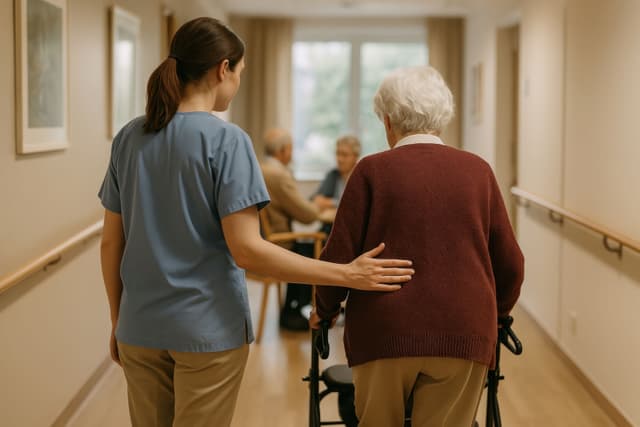
Michael Hill has been described as a generational attorney with numerous 7 and 8 figure trial verdicts and settlements, including records for the highest verdicts in numerous counties and the highest recorded verdict against a nursing home in Ohio history–$26 million. Michael has dedicated his practice exclusively to representing victims of severe neglect and abuse in nursing homes, assisted living facilities, and group homes and various other institutions.
Michael handles the most complex cases throughout the United States, from the far reaches of the West Coast to the East Coast. Michael is often brought on later in the case as trial counsel or to consult and direct the overall outcome of the case. Michael has built a reputation as a strong communicator who deeply cares about his clients and reforming the long-term care industry. When Michael is not in trial, he frequently lectures across the county—teaching other lawyers how to effectively handle these types of cases.
Born in Flint, Michigan, Michael attended Oberlin College in Oberlin, Ohio, He attended law school at Case Western Reserve University in Cleveland, Ohio where he graduated Magna Cum Laude and was published multiple times in national peer reviewed law journals.
view all resources

Few injuries are as troubling — and as preventable — as bedsores in nursing homes. Also known as pressure ulcers or pressure injuries, bedsores can develop when a resident remains in the same position for extended periods without proper movement or care. At Michael Hill Trial Law, we frequently work with families who are devastated to discover that a loved one developed severe bedsores while under professional supervision.
In many cases, bedsores are not simply a medical complication of aging. They are a warning sign of neglect, understaffing, or failure to follow basic care standards. Understanding how bedsores develop, when they may indicate negligence, and what legal protections exist in Ohio can help families take informed action.

Losing a loved one is always painful. Losing a loved one because of preventable neglect or negligence in a nursing home is devastating. At Michael Hill Trial Law, we speak with families who are not only grieving — but also struggling with the painful question: Could this have been prevented?
While many nursing home residents have serious medical conditions, that does not mean facilities are free from responsibility. When a nursing home’s failure to provide proper care leads to a resident’s death, families may have grounds for a wrongful death claim under Ohio law.

When families place a loved one in a nursing home — especially someone living with Alzheimer’s disease or dementia — safety is the top priority. One of the most dangerous risks these residents face is wandering, sometimes called elopement, when a resident leaves a supervised area or exits the facility without proper monitoring.
At Michael Hill Trial Law, we have seen how devastating wandering incidents can be. Residents who leave a facility unsupervised may suffer falls, exposure to extreme weather, traffic injuries, dehydration, or worse. In many cases, these incidents are not unavoidable accidents — they are the result of preventable safety failures.

When families place an elderly loved one in a nursing home, they focus primarily on safety, medical care, and quality of life. Financial protection is often overlooked — until something goes wrong. At Michael Hill Trial Law, we regularly speak with families who discover too late that a loved one has been financially exploited while living in a nursing home.
Financial exploitation of seniors is one of the most underreported and misunderstood forms of elder abuse. It can quietly drain savings, create long-term financial instability, and cause deep emotional distress for elderly residents who may already feel powerless. Understanding how financial exploitation happens, what warning signs to watch for, and how families can take action is critical to protecting vulnerable seniors.